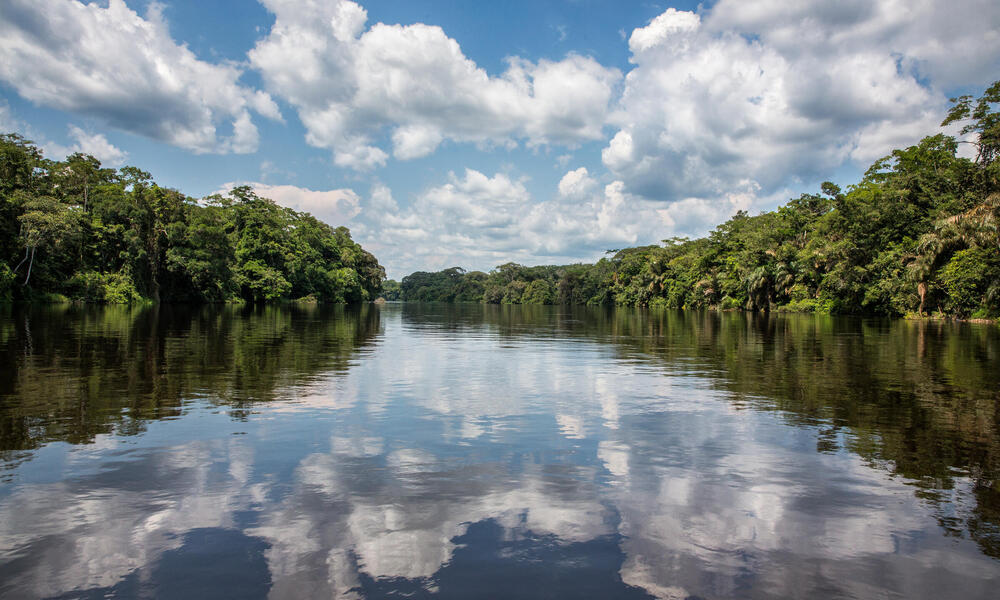
The Congo Basin, spanning across Central Africa, is home to the world’s second-largest rainforest, following only the Amazon. This vast, lush expanse is not only a natural wonder but also a critical area for global biodiversity, playing a vital role in the ecological balance of our planet.
Covering approximately 3.7 million square kilometers, the Congo Basin extends into six countries: Cameroon, Central African Republic, Democratic Republic of the Congo, Republic of the Congo, Equatorial Guinea, and Gabon. This sprawling rainforest is a sanctuary for a staggering variety of plant and animal species, many of which are found nowhere else on Earth.
A Biodiversity Hotspot
The Congo Basin’s rich biodiversity includes iconic species such as the African forest elephant, the critically endangered mountain gorilla, and the elusive okapi, a relative of the giraffe. Its dense forests also house a myriad of birds, insects, amphibians, and plants, contributing to its status as one of the world’s most important biodiversity hotspots.
Environmental Significance
Beyond its remarkable biodiversity, the Congo Basin is crucial for global environmental health. Its forests act as a significant carbon sink, absorbing large amounts of carbon dioxide and helping to mitigate climate change. The basin’s waterways, including the mighty Congo River, are vital for regional water cycles and support the livelihoods of millions of people.
Cultural and Economic Importance
The rainforest is not only an ecological treasure but also a cultural and economic lifeline for the indigenous peoples and local communities who inhabit the region. These communities rely on the forest for food, medicine, and shelter, and they possess invaluable traditional knowledge about sustainable forest management.
Threats and Conservation Efforts
Despite its importance, the Congo Basin faces numerous threats, including deforestation, illegal logging, mining, and poaching. These activities not only endanger wildlife but also contribute to the loss of forest cover, exacerbating climate change.
Conservation efforts are underway to protect this irreplaceable ecosystem. Governments, non-governmental organizations, and local communities are collaborating to promote sustainable land use practices, strengthen wildlife protection laws, and enhance conservation funding. International support and awareness are also critical in ensuring the long-term preservation of the Congo Basin’s unique natural heritage.
The Congo Basin stands as a testament to the Earth’s extraordinary natural beauty and diversity. Its preservation is essential not only for the countless species that call it home but also for the health and well-being of our planet. As global citizens, it is our collective responsibility to support and advocate for the protection of this vital rainforest, ensuring it remains a thriving ecosystem for generations to come.
